In 2022, the U.S. government signed the Inflation Reduction Act (IRA) into law – marking our nation’s largest investment ($369 billion) in clean energy.
By 2030, it’s estimated the U.S. will employ nearly 1 million people in manufacturing, construction, and service roles to help provide clean energy nationwide. In addition to creating well-paying jobs in the next decade, the IRA will also:
- Reduce our nation’s dependence on fossil fuels.
- Create a clean energy economy.
- Reduce air pollution by decreasing greenhouse gas emissions (leading to a reduction in healthcare costs and deaths related to poor air quality).
- Reduce energy bills (estimated up to $1,000 annual savings).
- Offer tax incentives and rebates for purchases of electric vehicles (EVs) and energy efficient appliances.
Benefits to Homeowners
Homeowners can take advantage of the many incentives being offered to help them make energy and money-saving improvements. For example, electric heat pumps and heat pump water heaters not only reduce dependence on unstable fossil fuel costs, but it’s estimated homeowners will save up to $6,500 in operating costs over the equipment’s lifespan, or about $650 annually on utility bills. Even better, these programs aren’t just designed to benefit middle- and upper-class homeowners who are more likely to be able to afford the improvements. Low- and moderate-income households can pick and choose from a variety of incentives, some of which can be doubled, that add up to significant savings when they purchase energy efficient appliances, increase their home’s insulation, or install rooftop solar panels. Here’s the breakdown:
- Up to $8,000 for heat pump, space heating and HVAC projects.
- Up to $1,750 for installing an efficient heat pump water heater.
- Up to $1,600 for improved insulation and sealing improvements to prevent energy waste.
- Up to $4,000 in rebates for new or modified parts that will save 35% of energy use or more, and $2,000 for equipment that saves 20% or more. These rebates double for low- and moderate-income homes.
- A $150 credit to help pay for an energy audit.
- A 30% tax credit for investing in clean energy systems like solar electricity, solar water heating, wind, geothermal heat pumps, fuel cells, and battery storage. The credit for residential solar electricity will be worth roughly $7,500 for the average household and nearly $400 annually on electric bills.
Annual caps apply to certain items like doors, windows, and skylights. To ensure you’re eligible to claim tax credits, either work with a contractor familiar with qualified equipment and installations or check the product manufacturer’s website to ensure your equipment qualifies.
Incentives for the Purchase of New and Used Clean Vehicles
In addition to providing several incentives for the purchase of new EVs and fuel cell vehicles, incentives will now extend to used EVs.
- Tax credit of up to $7,500 for a new clean vehicle.
- Tax credit of up to $4,000 for a used clean vehicle.
- Up to $1,000 towards the cost of a home charger.
- Savings of up to $11,000 in fuel costs over the lifetime of the vehicle, more than $700 per year.
Eligibility for a clean vehicle tax credit is based on time of purchase, your household income and whether the vehicle qualifies. Check the IRS website for a list of vehicles eligible for tax credits.
For more energy and money savings tips, visit nopec.org.
Categories: Consumer Questions | Energy Efficiency


